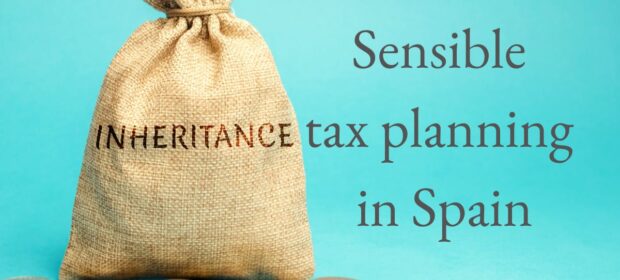Estate planning is a critical consideration for British expatriates living in the Balearic Islands. With assets potentially spread across the UK and Spain, and legal frameworks differing between jurisdictions, effective planning ensures that your wealth is passed on efficiently and according to your wishes. Here are the key points to consider:
Planning ahead is essential to safeguard your estate and reduce the likelihood of disputes or unnecessary tax liabilities. British expats in Spain often have assets in both countries, so your plan should address how these will be managed and distributed. Consideration should be given to residence status, the location of assets, and whether your heirs live in the UK, Spain, or elsewhere.
Wills. To streamline the probate process and ensure clarity in both jurisdictions, dual wills can be highly beneficial. This means having one will to cover your UK assets and another for your Spanish holdings. These wills must be carefully drafted to avoid legal conflicts or revocation—coordination between legal professionals in both countries is vital. A Spanish will must comply with local formalities and should reference the UK will, and vice versa.
Assets such as pensions, life insurance policies, and investment accounts may pass outside of a will, depending on the beneficiary nominations made. It’s crucial to regularly review and update these to ensure they align with your broader estate plan. Failing to do so can lead to unintended outcomes, especially if personal circumstances (like marriage or divorce) change.
Spanish Succession Law Spain operates a system of forced heirship, where a significant portion of an estate must go to specific relatives (typically children). However, EU Regulation 650/2012 (Brussels IV) allows foreign nationals residing in Spain to opt for the succession law of their country of nationality. This election must be clearly stated in your Spanish will. Without it, Spanish law may apply by default, potentially overriding your intentions.
UK Inheritance Tax (IHT) Even if you are a long-term resident of Spain, and recognising the recent favourable changes to UK inheritance tax (IHT) rules for many expatriates, you may still face IHT on both UK and non-UK based assets. Careful planning can ensure this exposure is removed entirely. At the same time, Spanish succession tax may also apply based on the location of assets or the residency of beneficiaries. This creates a risk of double taxation. However, tax treaties and relief provisions mitigate these liabilities if utilised effectively.
Solutions. There are several tools and strategies that can enhance estate planning efficiency, including the use of trusts, life insurance policies for tax mitigation, and gifting strategies. Spanish-compliant investment bonds, for instance, may provide tax deferral benefits and simplify succession. The suitability of these solutions depends on personal circumstances and goals.
Professional Advice. Given the complexity of cross-border estate planning, expert guidance is not just helpful—it’s essential. A qualified financial adviser and a solicitor familiar with both UK and Spanish succession laws can ensure your plan is both compliant and effective. Coordinated advice prevents legal conflicts and optimises outcomes for your heirs.
In summary, British expatriates in the Balearics must take a proactive, coordinated approach to estate planning. By understanding the interplay between UK and Spanish law and seeking tailored advice, you can protect your legacy and ensure your wishes are respected.






















